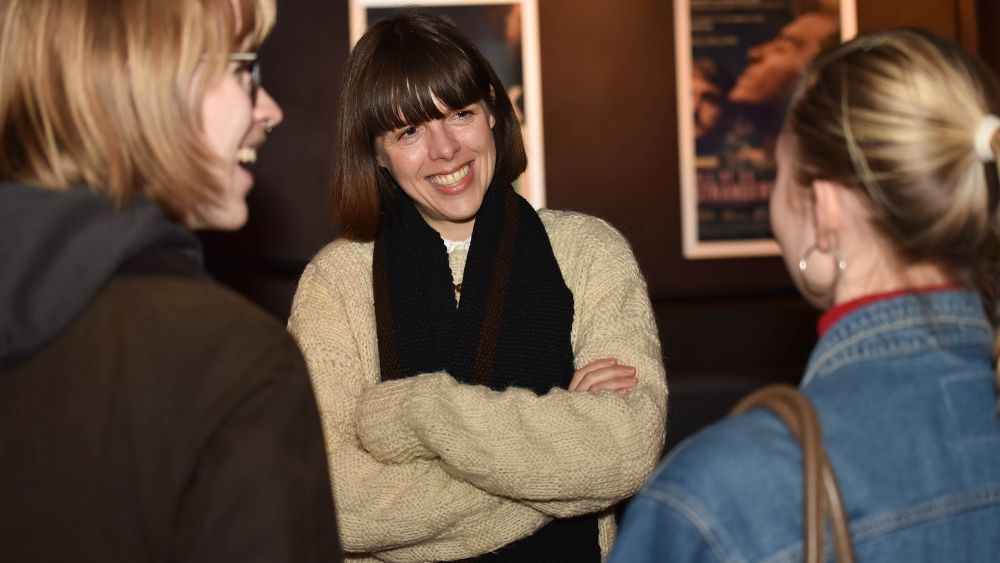
Lies and repercussions – Girlhood and female sexuality in Una Gunjak’s “Excursion”
Based on a true event, Una Gunjak’s Excursion explores a young girl’s place in society as she explores her sexuality and relationships. Iman, a fifteen-year-old girl, seeks validation among her peers by claiming she had sex for the first time during a game of “truth or dare”. Trapped in her own lie, she invents a pregnancy and becomes the center of a controversy that spirals out of control. The film encourages the audience to question Iman’s decision for making up such a lie but it also asks the audience to question the reactions of the adults- and society by extension.
“I never wanted to make a film with a message. I wanted to make a film that asks questions and makes people reflect a little bit.”
The lie comes about in a game of “truth or dare” among the middle schoolers when someone asks Iman if it is true that she had sex with an older boy from the school. It is not Iman who starts the lie, in fact, the boy started the rumor himself and she only goes along with a lie that already existed. Yet she is the one who has to deal with all the repercussions. The boy is seen as cool and is barely questioned for having supposedly slept with Iman yet when she claims the lie to be true all the questions are directed towards her. All of a sudden there are consequences and her reputation is at stake. But why would she carry on the lie if she knew it was not true? Teenagers have a need to feel like they belong. As they are discovering themselves and finding out who they are, all they want is to fit in. Iman is offered a way to fit in with the group and even seem cool among her peers. And so she grabs the chance without thinking much ahead. This story of discovering one’s sexuality and wanting to belong is something most people are all too familiar with. It is a story that transgresses cultures and unifies every teenager’s experience. “Of course, everyone who has been a teenager can relate to a very big degree regardless of how their teenagehood has been.”
“Sometimes very good intentions are a road to hell because nobody wishes anything bad for any children. They all just want to protect themselves and protect the children. But sometimes on this big scale, the effect is quite the opposite.”
Una, the director, took inspiration from a real-life scandal that occurred in Bosnia. She notes that she wasn’t preoccupied with what really happened in the scandal, whether the girl was in fact lying or not, instead she was concerned with how people responded to the story. “The film is really about the sexuality of a young girl in Bosnia and how she deals with it in the society she lives in. So a lot of it is about the society as well, how they respond to girls becoming sexual beings. […] It really got me thinking more about how society reacted to it more than what really happened during that infamous school trip.” Surrounding the scandal, what struck Una was the way people were talking about girls. How girls are not protecting themselves and how girls are not doing this or that, as if they are the ones who have to take all responsibility by themselves. Una believes people are more tolerant towards boys when they are discovering their sexuality. “When the boy is discovering his sexuality it’s cute and […] also something that is laced with pleasure.” It is seen as a normal progression for boys. Girls do not get the same chance. “There is a huge sense of shame, guilt and also danger.”
“What happens with girls, if we take aside that it’s shameful and unnatural, you are expected to jump from the stage of a girl to a responsible woman without ever going through the transition of being a sexual being.”
With this film Una sheds light on these discrepancies and encourages viewers to look inwards and reflect on their own, as well as society’s, views and prejudices towards female sexuality.
– Written by Stefanía Stefánsdóttir
– Photo by Michail Costadino

